
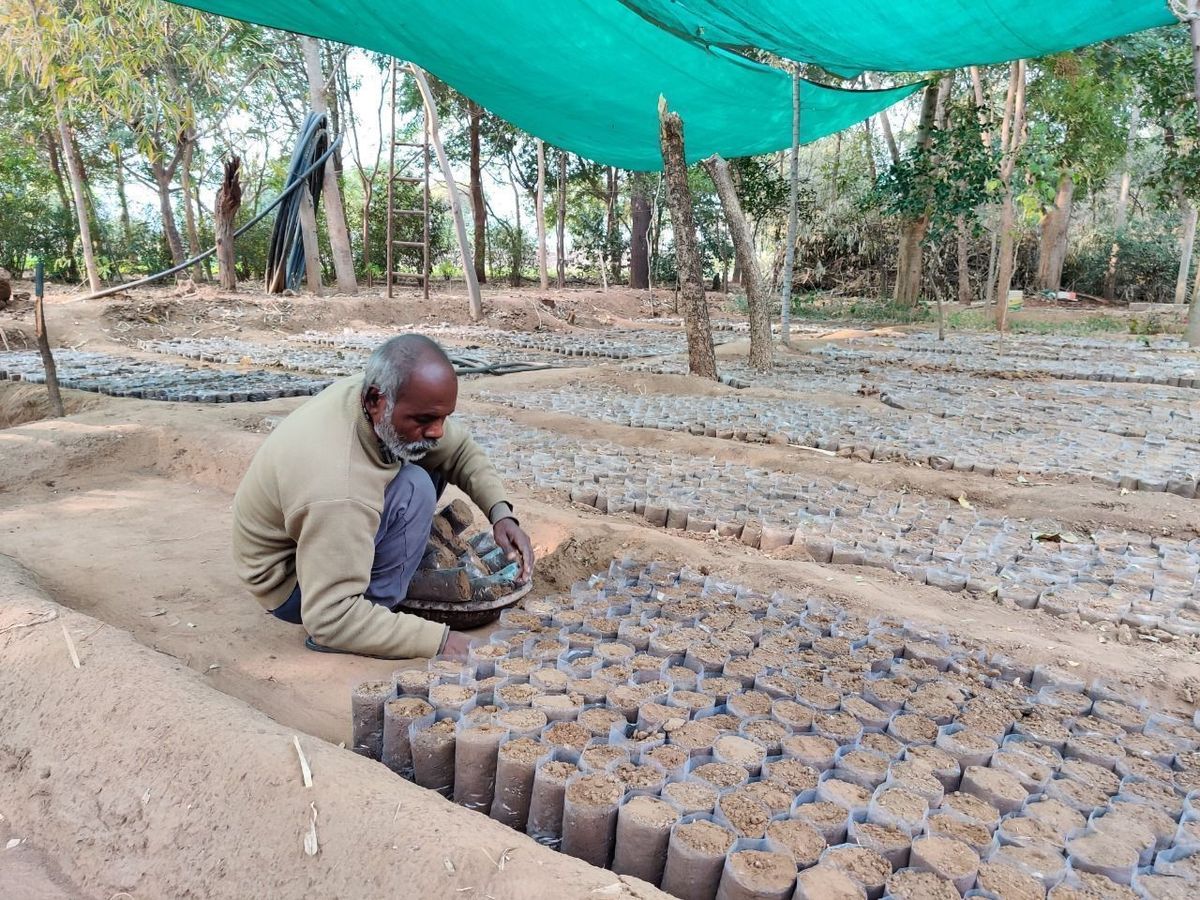
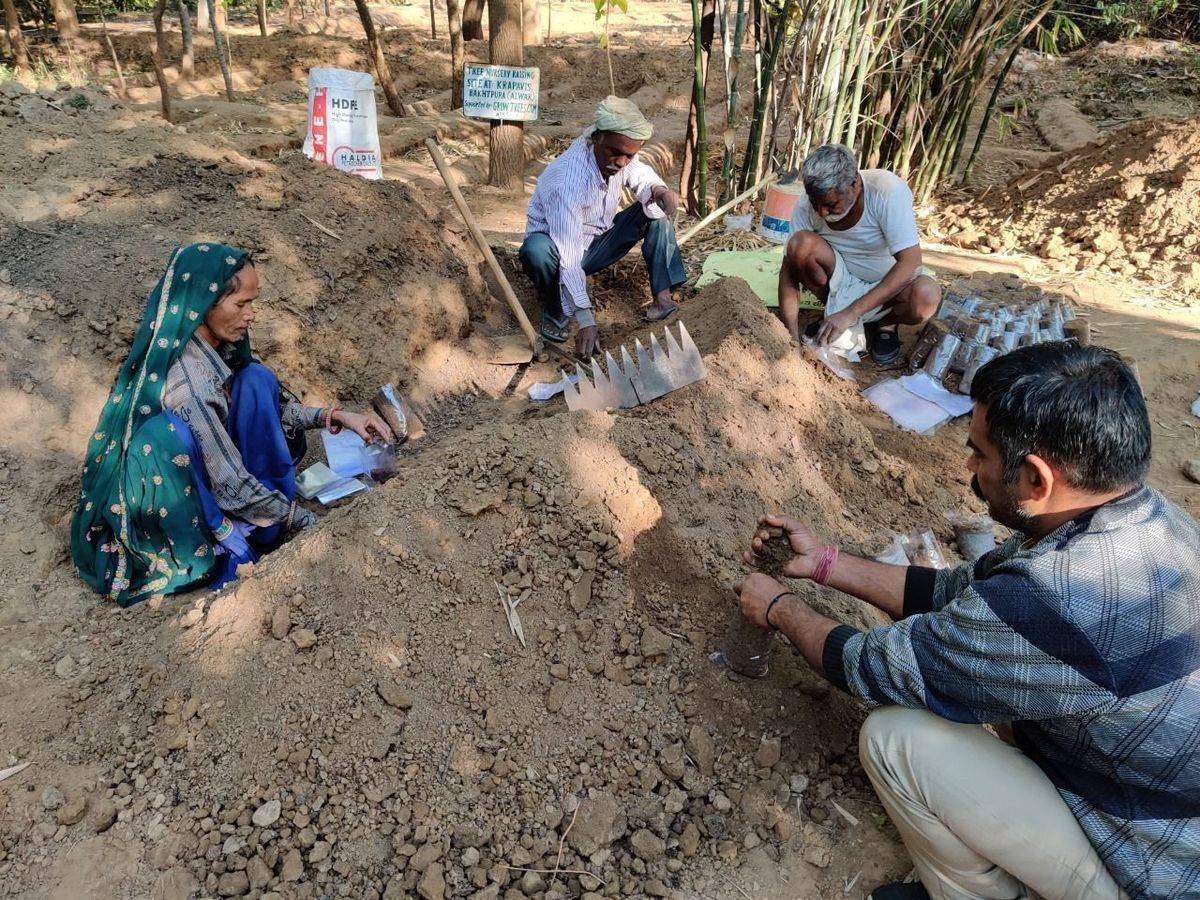
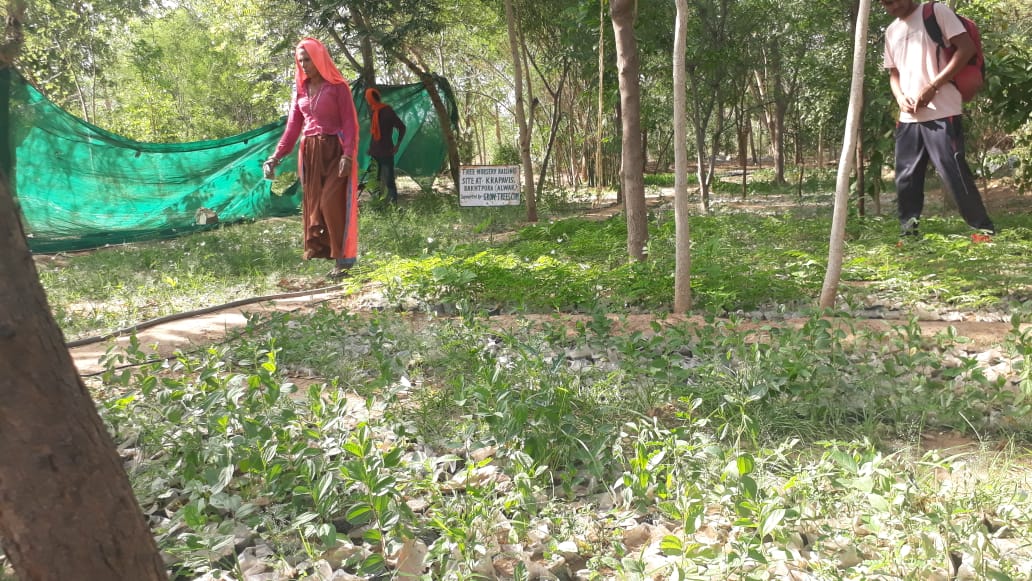
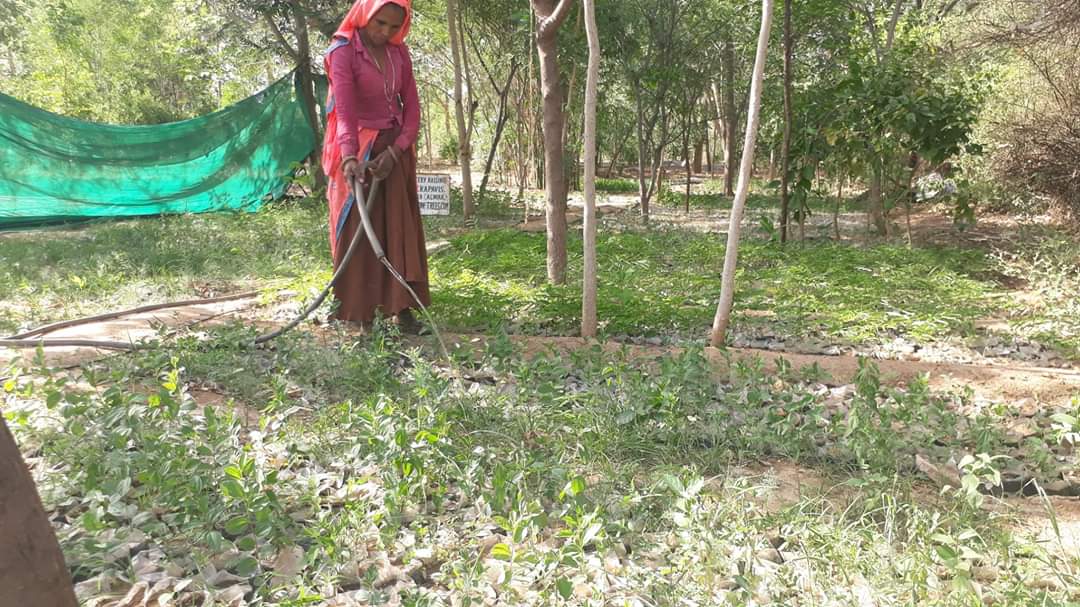

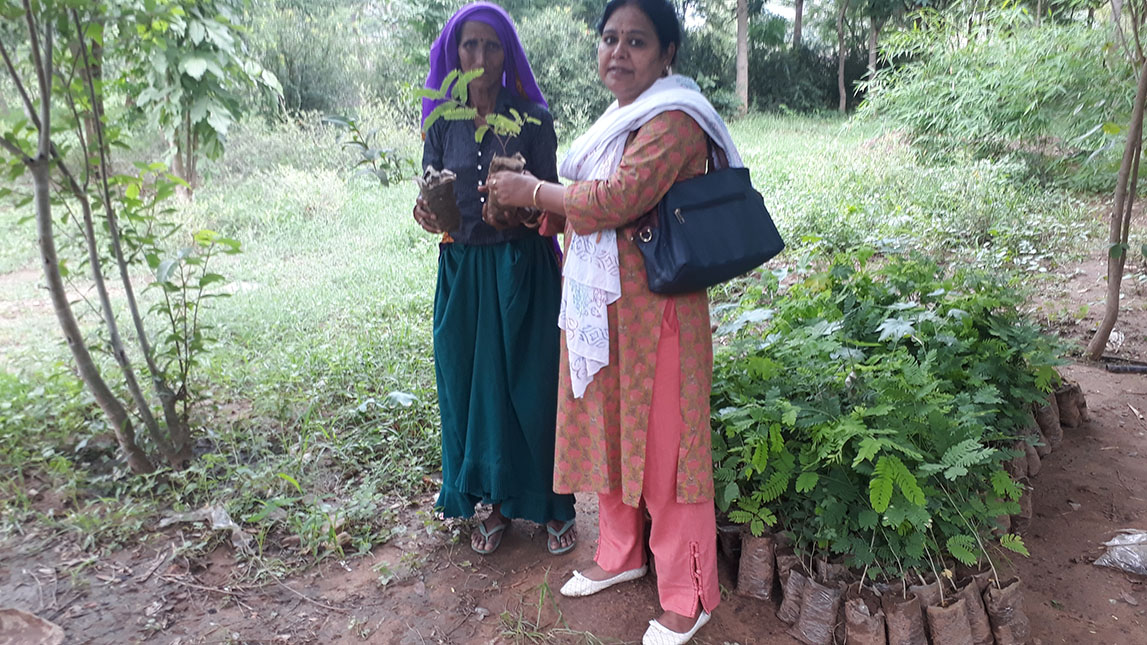
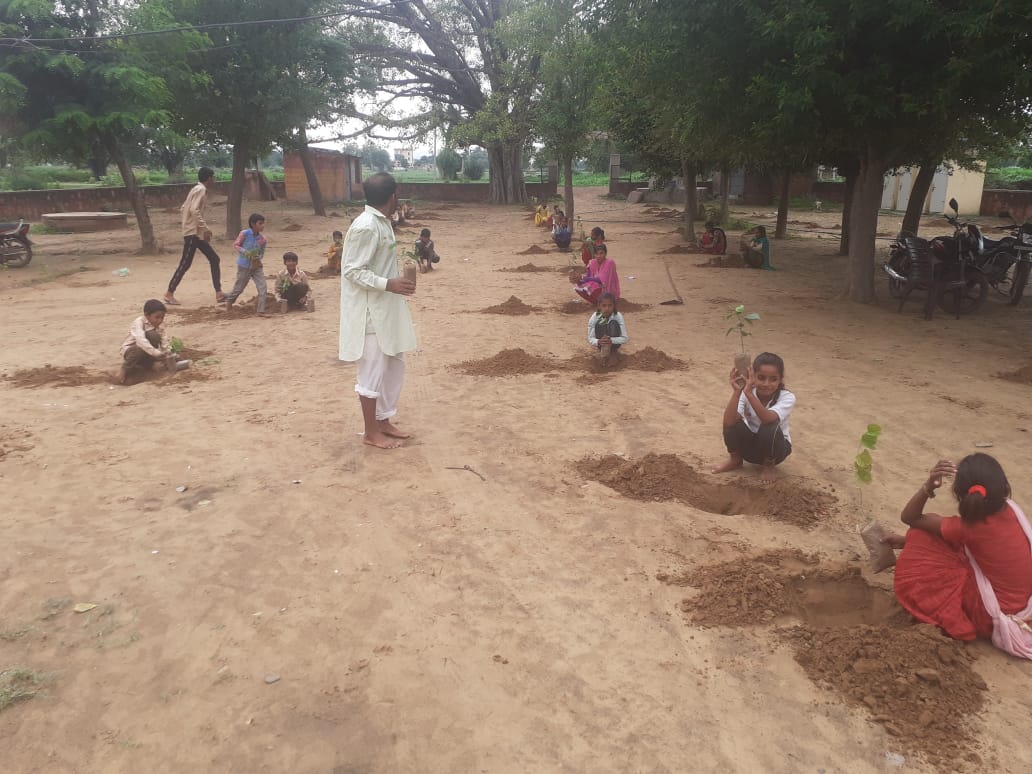
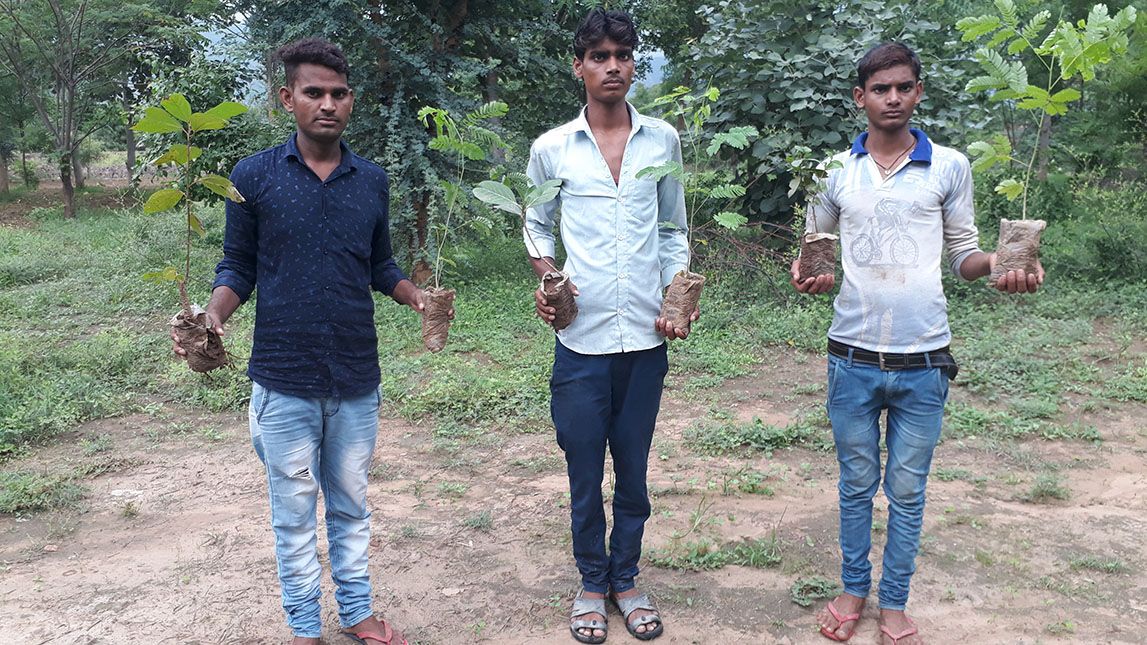
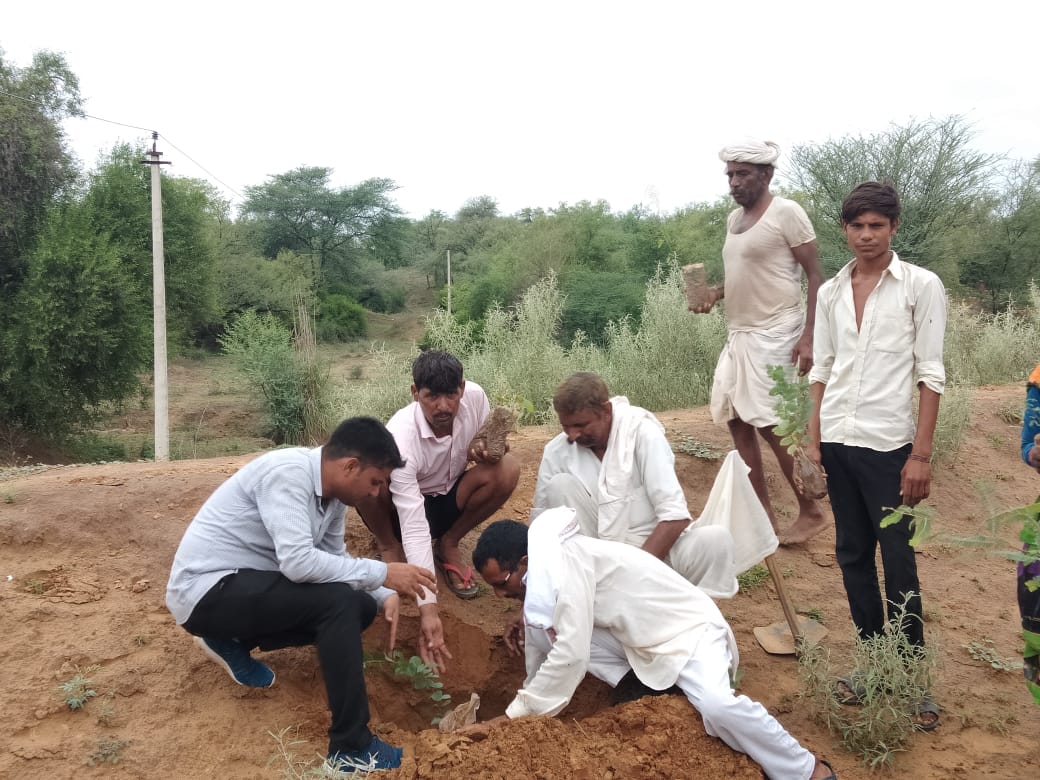

Project Target
0% Remaining
430,025
Trees Planted out of 430,025 Trees

Project Location:
Plantation of local trees in a cluster of 300 hamlets located at the Periphery of Sariska Tiger Reserve, Alwar, Rajasthan, India.
Project Aim
The area around the Sariska Reserve is rich in mineral reserves and thus, illegal mining has been continued in spite of the ban on such activities, which has proved to be a major threat to the endemic tiger population (TNN, 2003). Abhishek Harihar, a tiger scientist for Panthera, a global wild cat conservation organization, states that poaching and infrastructure development act as the greatest threat to our forests and wildlife. Humongous conservation efforts are failing due to the prevalence of poaching.
Researchers point to the importance of tiger conservation owing to their ecological as well as their economic values. They form a very important part of the cultural heritage of India. Their habitat in the dry deciduous forests of Rajasthan enables them to hunt, reproduce, and camouflage from potential threats. Thus, trees are essential to tiger conservation.
Trees are also essential to the rural communities, for their survival as well as economic sustainability. The importance is spoken about by various researchers like Pant (1980), which includes that trees provide not only firewood but also mitigate against floods and disasters. A cost-benefit analysis is provided by (al., 2016) of the illegal wildlife trade, stating the importance of protecting wildlife and their habitat for the benefit of rural communities.
The tree species planted here include Indian Plum (Ziziphus mauritiana), Neem (Azadirachta indica), Salai (Boswellia serrata), Sahajan/Drumstick (Moringa oleifera), Agati (Sesbania grandiflora), Babool (Vachellia nilotica), Sheesham (Dalbergia sissoo), Lemon (Citrus limon), Papaya (Carica papaya), and Amla (Phyllanthus emblica).
The communities have together participated in all activities that are imperative for the rejuvenation of the lands and wildlife such as planting trees, setting up a seed bank, building and maintaining ponds, water harvesting. Many local species which include fruit trees and medicinal plants have been reintroduced in the areas and people are encouraged to use these resources judiciously, a step that will help preserve the biodiversity of the area and enable the local community to utilize the forest produce to generate revenue.
Due to the project, approximately 35,200 workdays of jobs have been created, mainly in the nursery raising and planting activities. Major beneficiaries of such employment opportunities are rural women, who gain an additional source of income from these activities. Fully mature trees are already providing the communities with various forest resources. According to the forest department, the tigers ST6 and T10 have been sighted in the project area along with an increase in the peacock and deer population due to the restoration of their habitat. Enhancing and strengthening faunal diversity will be contributed to the inflow of tourists in the area boosting nature-based tourism.
The lack of tree cover in Rajasthan makes certain sections of the state prone to flooding from moderate to heavy rainfall as seen in the flash floods in Alwar in the year 2005 (TNN, 6 dead in Alwar flash floods, 2005). Trees intercept rainfall, reducing the erosive effect of the rainwater on soil and slowing down the accumulation of water in low lying areas. Loss due to landslides and soil erosion is triggered by the floods (Bengwayan, 2018). The trees planted thus not only contribute to the conservation of wildlife but also provide safety against natural disasters.
| Name of the Company | Number of Trees Adopted | Fiscal Year |
|---|---|---|
| CLP India | 50,000 | 2019-20 |
| Croma | 50,000 | 2017-18 |
| Hero Motor Corp | 15,000 | 2017-18 |
| Ingenico Group | 15,000 | 2017-18 |
| TATA Capital | 100,000 | 2015-17 |
| Lotus Greens Developers Pvt. Ltd. | 21,000 | 2013-14 |
| Other Contributors (Individuals & Corporates) | 149,024 | NA |
Social Impact of Growing Trees
Community Engagement
Tree planting initiatives often involve local communities, which can lead to greater community cohesion.
Ecological Education
Provides opportunities for community members, especially children, about the importance of environmental sustainability.
Urban Beautification
Trees contribute to the aesthetic enhancement of urban areas, making cities more pleasant and liveable.
Climate Resilience
By improving green cover, tree planting helps make communities more resilient against climate impacts like heatwaves.
Employment Creation
Planting trees creates employment for local community members like planting and maintenance, administrative roles, and more long-term jobs in management.
Wildlife Habitat
Trees provide critical habitats for various species of wildlife. Enhancing tree cover helps preserve biodiversity, which can be an ecological boon for local communities
Copyrights @ 2025 All rights reserved by Pangea EcoNetAssets Pvt Ltd.